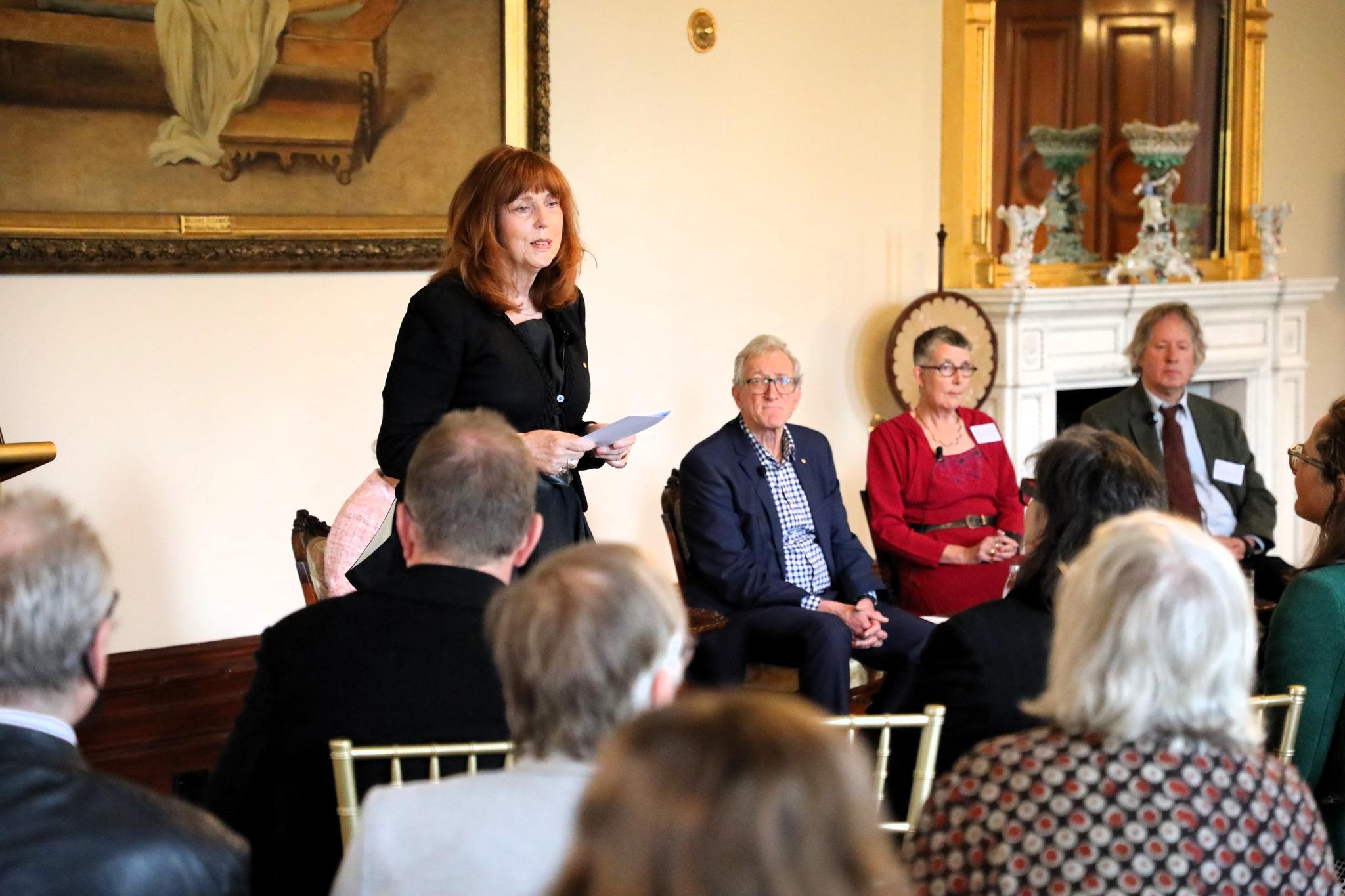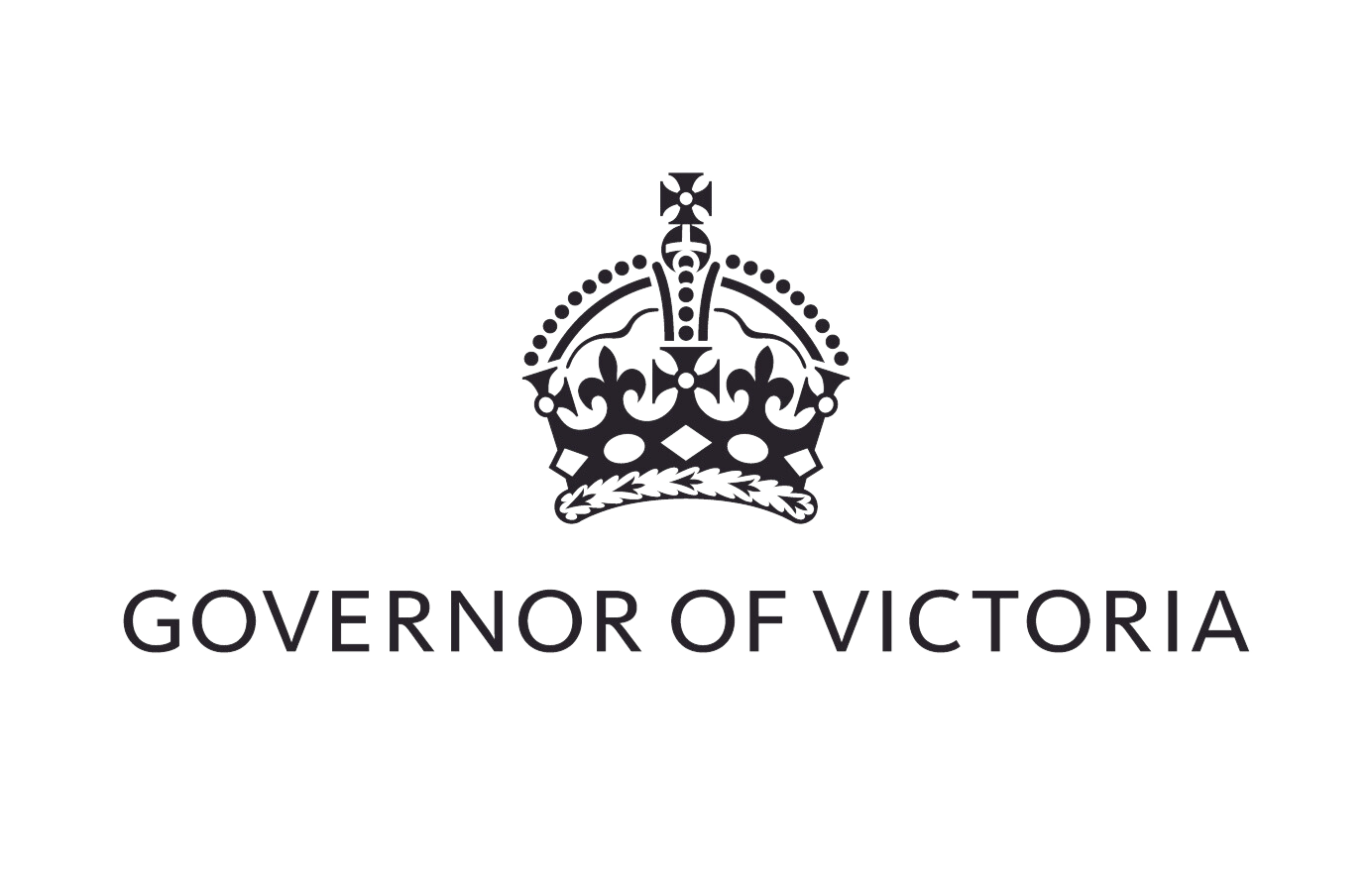
Read a summary of the discussions hosted by the Governor in 2024
Understanding Victoria commenced in May 2024 as a new series of discussions about key periods and themes in Victoria's history. Over three discussions, participants engaged in conversations that explored the nature and shape of our democracy.
The first discussion focused on the impact of Gold Rush on ideas, identity, and society in Victoria; the second on Victoria’s role in the creation and outcomes of Federation; and the third on the development of human rights in modern Victoria.
A collaboration with the Victorian Historical Journal will enable each of the discussions to be published and available for access to the wider community.
The December 2024 issue of the Victorian Historical Journal describes the first discussion in detail, featuring the remarks from the Governor and the facilitator Maxine McKew AM, as well as the presentations from each of the three speakers. The second and third discussions will be published in the Victorian Historical Journal in 2025.
Discussion 1: “Disturbing the order of things”
Speakers and Topics
Professor Richard Broome AM, Emeritus Professor History, La Trobe University: “What was the impact of colonisation on the First Peoples of Victoria to 1860?”
Robyn Annear, Author and Historian: “How might we best understand the impact of the gold rush on the development of Victoria? What if the Victorian gold rush never happened?”
Professor David Goodman, University of Melbourne: “What kind of democracy emerged in the gold rush period?”
Discussion Summary
The Governor of Victoria hosted the first event in a new series called "Understanding Victoria," focusing on key periods in the state's history. The inaugural discussion explored the impact of the gold rush on Victoria's identity, society, and development.
Speakers discussed the detrimental effects of colonisation on First Peoples, highlighting the environmental damage and the disruption of Indigenous lives and culture. The gold rush, while less impactful than colonisation itself, led to a significant influx of migrants, contributing to Victoria's multiculturalism but also fuelling political tensions.
The event also examined the emergence of democracy during the gold rush period, with discussions on the licensing system, the Eureka Stockade, and the clash between public good and private interests. The gold rush's legacy includes the establishment of key institutions and Melbourne's rise as a major city.
An excerpt of the December issue of the Victorian Historical Journal, which describes the presentations in detail, is available via the attachment below.
Discussion 2: “Faith in the people?”
Speakers and Topics
Emeritus Professor Judith Brett AM, La Trobe University: “From 1901 to 1927 the Federal Parliament and government were located in Melbourne. What, if any, effect did this have on the new Commonwealth of Australia?”
Associate Professor Carolyn Holbrook, Contemporary Histories Research Group, Deakin University: “Why did Federation in 1901 fail to inspire Australians as a moment of national birth, and what consequences does this failure have for our democracy?”
Professor Marilyn Lake AO, Honorary Professorial Fellow, History, The University of Melbourne: “When Federation created a new political community called the Commonwealth of Australia what were its ideals and who were imagined as its citizens?”
Discussion Summary
The discussion focused on the progressive ideals that shaped the Australian Federation and the complexities surrounding its national identity.
It explored the influence of "radical liberals" who spearheaded progressive policies like the minimum wage and envisioned a "white man's standard of living." The White Australia Policy was discussed, noting its intention to exclude "cheap labour" and the protests it evoked from Chinese-Australians advocating for cosmopolitanism and human rights.
The discussion highlighted the role of Melbourne as the temporary capital and its impact on the Federation's survival and policy direction. The influence of Victoria's social-liberal culture on the early political landscape was examined.
The discussion also delved into the complexities of national identity formation, questioning when Australians truly began to identify as such. The lack of a unifying "national birth" moment and the challenges of reconciling with indigenous history were raised.
The role of education in shaping national identity and the need for a more inclusive and comprehensive understanding of Australian history were emphasised. The discussion concluded with a call for greater understanding and critical engagement with the complexities of the nation's past.
Discussion 3: "Human rights and modern Victoria"
Speakers and Topics
Emeritus Professor Dennis Altman AM, La Trobe University: "Why did a gay movement emerge when it did and how successful was it?"
Emeritus Professor Diane Kirkby, La Trobe University: "How are we to understand the dynamics of 1970s protests in the continuum of feminist activism?"
Professor Gary Foley, Victoria University: "Victoria’s key role in the black power movement."
Discussion Summary
The discussion focused on social and political movements in Victoria, Australia, primarily during the 1960s and 70s. Participants discussed various topics, including gay rights, women's rights, aboriginal rights, and the White Australia Policy.
There was a reflection on the lack of public knowledge about these movements and how the Victorian curriculum favours STEM subjects. The impact of abortion law reform and the fight against authority was a key point. The discussion also covered women's protests against discriminatory drinking laws.
The decriminalisation of homosexuality was discussed, noting the varied political climates in Victoria and New South Wales. The role of universities and student activism was also covered.
The discussion also highlighted the resistance to change and the importance of considering individual voices in these movements. It touched upon the cultural differences between Melbourne and Sydney, noting a shift in radicalism towards Sydney in the 1960s and 1970s.
The role of newly established universities in providing access to education for middle and lower classes, leading to increased awareness of issues like equal pay was discussed.
The discussion concluded by highlighting the importance of understanding Australian history and the need for open conversations to address social and political issues.
